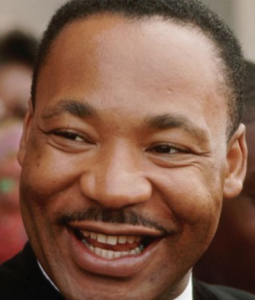Writings: Dr. Martin Luther King’s thoughts, on love..eros & philia & agape

As luck would have it (and all monks know they are lucky – why else would we win so often, with each roll of the dice?), I grew up in Montgomery, Alabama, in the Southeastern United States in the time of Dr. King. Those marches & changes & speeches & rallies & protests all happened in my hometown.
The changes they brought ’round have been a key part of why I believe anything is possible, anything good can prevail.
Did then. Does now.
I’ve always loved it that the word “agape” (uh • GAH• pay) is spelled the same as the way we look when we see something amazing, and we stand with our mouths agape (uh • GAPE). It’s an accidental overlap that semantics can, at times, provide, because I believe when that kind of love is rolling over & around you, and through you, it can leave you openmouthed with amazement.
Here’s how Dr. King ties all that together:
Agape Love
By Dr. Martin Luther King Jr.
The Greek language uses three words for love.
It talks about eros. Eros is a sort of aesthetic love. It has come to us to be a sort of romantic love and it stands with all of its beauty. But when we speak of loving those who oppose us we’re not talking about eros.
The Greek language talks about philia and this is a sort of reciprocal love between personal friends. This is a vital, valuable love. But when we talk of loving those who oppose you and those who seek to defeat you we are not talking about eros or philia.
The Greek language comes out with another word and it is agape. Agape is understanding, creative, redemptive good will for all men.
Biblical theologians would say it is the love of God working in the minds of men. It is an overflowing love which seeks nothing in return. And when you come to love on this level you begin to love men not because they are likeable, not because they do things that attract us, but because God loves them and here we love the person who does the evil deed while hating the deed that the person does.
It is the type of love that stands at the centre of the movement that we are trying to carry on in the Southland—agape.
(source: http://teachingamericanhistory.org/library/document/the-power-of-non-violence/)
(also: http://www.ramdass.org/featured-teacher-dr-martin-luther-king-jr/)
 Over the centuries, Brother Ian has been collecting stories & information & discourses for the purpose of elevating the human condition as needed, dissecting it when necessary, and building the case for hope.
Over the centuries, Brother Ian has been collecting stories & information & discourses for the purpose of elevating the human condition as needed, dissecting it when necessary, and building the case for hope.